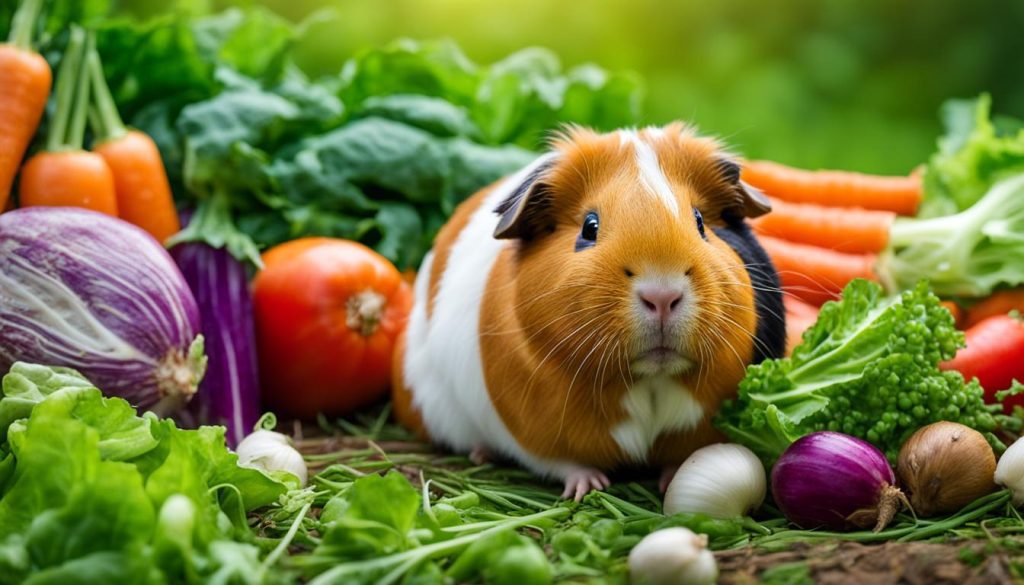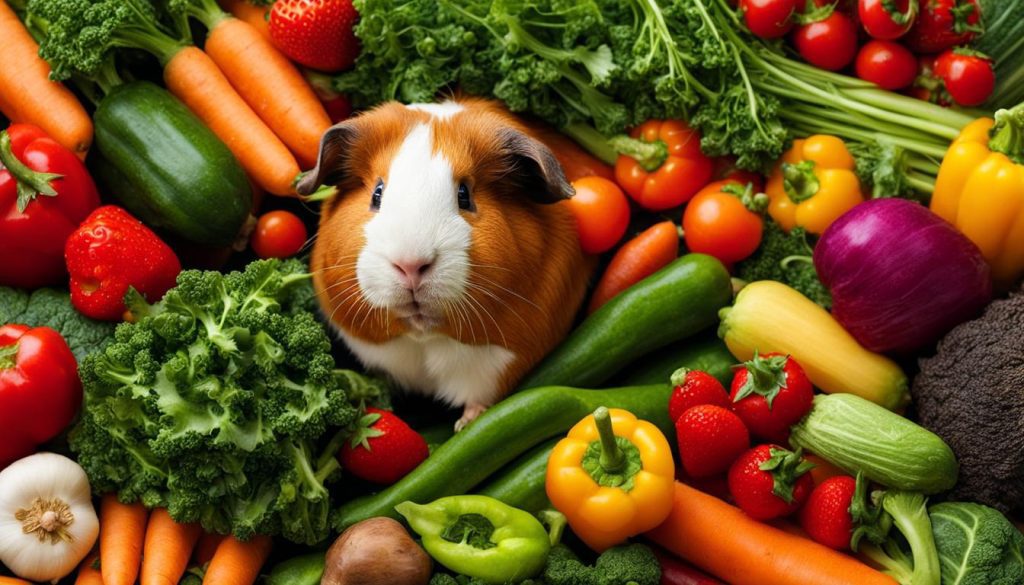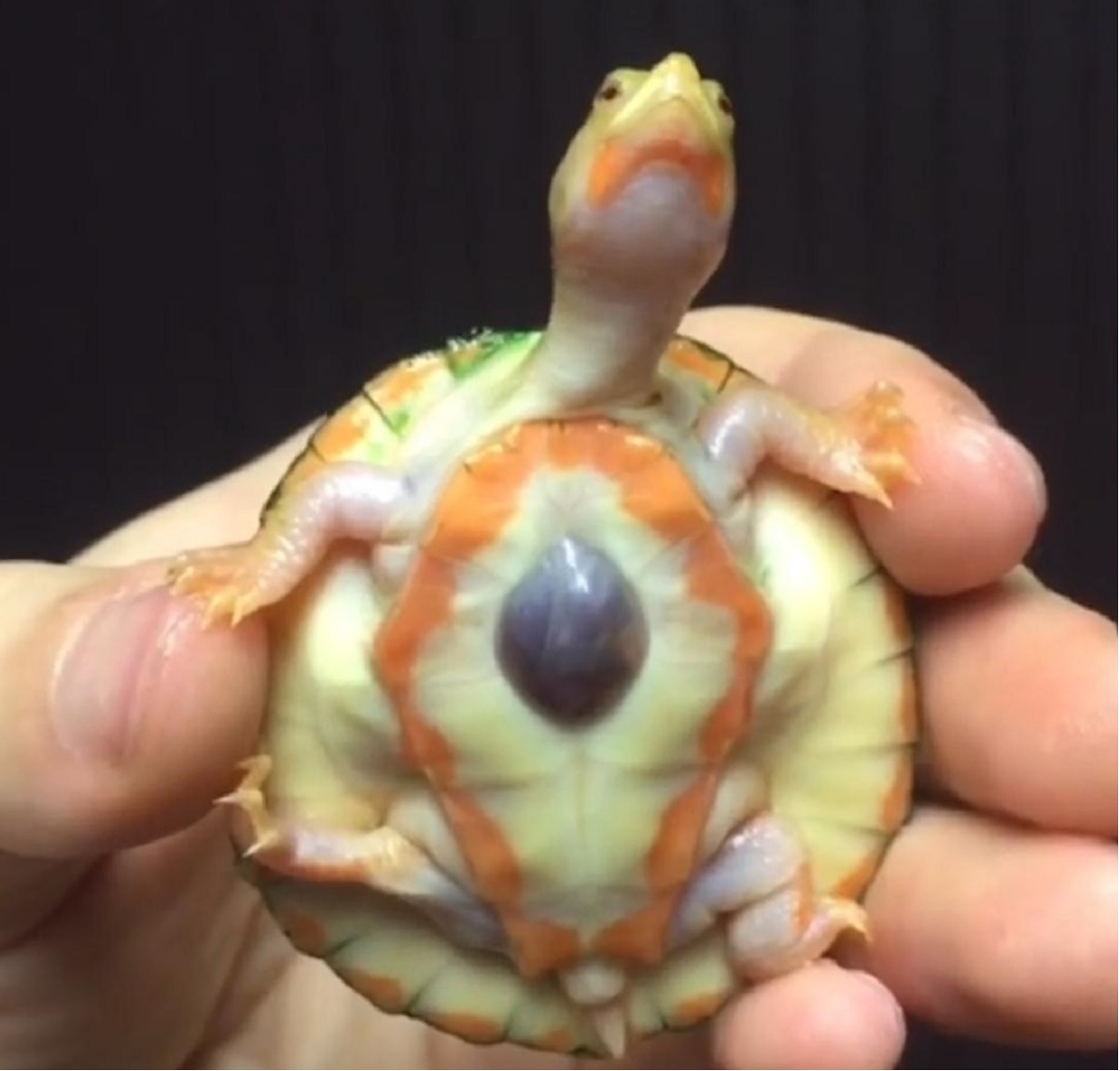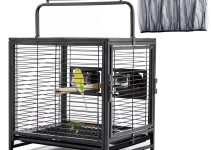As a proud guinea pig owner, I’m always looking for new and healthy foods to offer my furry friend. Recently, I’ve been curious about peas and whether they are safe for guinea pigs to eat. After doing some research, I’ve discovered some interesting facts about guinea pigs and peas.
So, can guinea pigs eat peas? The answer is yes, with a few important considerations. While peas can be a part of a guinea pig’s diet, it’s essential to understand the nutrition facts and guidelines for feeding them to our beloved pets.
Can Guinea Pigs Eat Peas? Yes, they can but in moderate amounts.
- Peas can be safely included in a guinea pig’s diet, but in moderation.
- Peas are high in sugar, so they should be given sparingly to prevent health issues.
- Fresh, clean peas are preferable to canned or frozen peas.
- Peas should be introduced gradually to prevent any digestive upset.
- Consult with a veterinarian before making any changes to your guinea pig’s diet.
The Nutritional Value of Peas for Guinea Pigs
Peas offer a range of nutritional benefits for guinea pigs, making them a valuable addition to their diet. They are a good source of vitamins A, C, and K, which play essential roles in supporting the overall health of your furry friend. These vitamins contribute to a strong immune system, healthy skin and coat, and proper blood clotting.
In addition to vitamins, peas also provide an excellent source of fiber, promoting healthy digestion and preventing issues like constipation. The fiber content in peas helps regulate bowel movements and keeps the digestive system running smoothly.
Peas are also rich in minerals like potassium and iron, important for maintaining optimal bodily functions. Potassium helps support nerve function and muscle health, while iron plays a crucial role in the production of red blood cells, ensuring proper oxygen transport throughout the body.
Furthermore, peas contain a moderate amount of protein, an essential nutrient for guinea pigs. Protein is important for the growth and repair of tissues, as well as the production of enzymes and hormones.
While peas offer numerous nutritional benefits, it’s crucial to exercise moderation in feeding them to guinea pigs. Peas are naturally high in sugar, which can lead to weight gain and potential health issues if given in excessive amounts. Therefore, it’s recommended to incorporate peas into your guinea pig’s diet in small quantities.
When including peas in your guinea pig’s diet, remember to provide a balanced and varied selection of other vegetables and hay. This ensures that your guinea pig receives a comprehensive range of nutrients necessary for their overall well-being.
How to Feed Peas to Your Guinea Pig
When it comes to introducing peas into your guinea pig’s diet, proper handling and portion control are key. Here are some tips on how to feed peas to your furry friend:
1. Wash and prepare the peas: Before serving peas to your guinea pig, ensure they are thoroughly washed to remove any dirt or pesticides that could be harmful. It’s important to prioritize their health and safety by providing fresh and clean vegetables.
2. Serve them fresh and raw: Peas should be served to your guinea pig in their natural state, as cooking can potentially diminish some of their nutritional value. Raw peas provide the maximum benefits and retain their vitamins, minerals, and fiber that contribute to your guinea pig’s overall well-being.

3. Start small and observe: Begin by offering a small piece of pea to your guinea pig and closely monitor their reaction. Observe whether they enjoy the taste and show no signs of digestive upset. If everything goes well, you can gradually increase the portion size, remembering to maintain moderation.
4. Treat, not staple: Peas should be given as a treat rather than a main component of your guinea pig’s diet. They should not exceed 10% of your guinea pig’s overall vegetable intake. It’s crucial to offer a variety of vegetables to ensure a balanced and nutritious diet for your furry companion.
By following these guidelines, you can safely incorporate peas into your guinea pig’s feeding routine. Remember, a well-balanced diet is essential for their health and happiness.
The Benefits of Peas for Guinea Pigs
Peas offer several benefits to guinea pigs. They provide essential vitamins and minerals that contribute to their overall health and well-being. The fiber in peas helps promote a healthy digestive system and can prevent issues like constipation. Peas also add variety to the guinea pig’s diet, making mealtime more enjoyable for them. However, it’s important to remember that peas should not be the primary source of vegetables for guinea pigs and should be given in moderation.
To ensure a balanced guinea pig diet, it’s important to include a variety of other safe foods. This includes hay, pellets, and other vegetables that provide different nutrients. Offering a variety of fresh foods will help ensure that your guinea pig gets all the necessary vitamins and minerals they need to thrive.
When feeding peas to your guinea pig, it’s crucial to serve them fresh and raw to preserve their nutritional value. Avoid canned or frozen peas, as they may contain additives or preservatives that are not safe for guinea pigs to consume. Always wash peas thoroughly before serving to remove any dirt or pesticides.
Safe Food Choices for Guinea Pigs
In addition to peas, there are many other safe food choices for guinea pigs. Some examples include:
- Romaine lettuce
- Bell peppers
- Carrots
- Cucumber
- Parsley
These vegetables provide a range of vitamins and minerals that contribute to the guinea pig’s overall health. Remember to introduce new foods gradually and observe your guinea pig for any adverse reactions. If you notice any concerning symptoms, consult with a veterinarian.
Potential Risks and Limitations of Feeding Peas to Guinea Pigs
While peas can be a nutritious addition to a guinea pig’s diet, there are some risks and limitations to consider. As mentioned earlier, peas are high in sugar, so they should be given in small amounts to prevent obesity and other health issues. Additionally, some guinea pigs may have a harder time digesting peas, leading to digestive upset or gas. It’s important to monitor your guinea pig’s reaction to peas and consult with a veterinarian if you notice any concerning symptoms.
Other Vegetables Suitable for Guinea Pigs
Guinea pigs need a varied diet that includes a range of vegetables to ensure they receive optimal nutrition. In addition to peas, there are several other vegetables that are safe and beneficial for guinea pigs to consume. These vegetables provide essential vitamins and minerals that contribute to their overall health and well-being.
Some examples of vegetables that are safe for guinea pigs to eat include:
Romaine Lettuce: Romaine lettuce is a leafy green vegetable that is low in calories and rich in vitamins A and C. It provides hydration and promotes healthy digestion in guinea pigs.
Bell Peppers: Bell peppers are a great source of vitamin C and fiber. They come in a variety of colors, including red, yellow, and green, offering both nutritional benefits and visual appeal for your furry friend.
Carrots: Carrots are high in vitamin A and provide a crunchy texture that guinea pigs enjoy. However, they should be given in moderation due to their sugar content.
Cucumber: Cucumbers are hydrating and low in calories, making them a refreshing and nutritious addition to a guinea pig’s diet. They are also a good source of vitamins K and C.
Parsley: Parsley is an herb that contains vitamins A, C, and K. It adds variety to a guinea pig’s diet and can also help freshen their breath.
When introducing new vegetables to your guinea pig’s diet, it’s important to do so gradually. Start by offering a small amount and monitor their reaction. If they tolerate the new vegetable well, you can gradually increase the portion size. However, if they show any signs of digestive upset or discomfort, it’s best to consult with a veterinarian.
Remember, a balanced diet is crucial for the overall health of guinea pigs. Along with vegetables, they should have access to high-quality hay, clean water, and a small amount of pellets. Providing a variety of vegetables, along with proper hay and pellet intake, will help ensure that your furry friend receives the necessary nutrients for a healthy and happy life.
The Importance of a Balanced Diet for Guinea Pigs
A balanced diet is crucial for the overall health and well-being of guinea pigs. As a responsible pet owner, it is essential to provide them with the right combination of nutrients to ensure their optimal care.
Guinea pigs require a variety of foods to thrive, including high-quality hay, fresh vegetables, pellets, and clean water.

Hay: The Foundation of a Guinea Pig’s Diet
Hay should make up the majority of a guinea pig’s diet and should be available to them at all times. This provides the necessary fiber that aids digestion and keeps their teeth healthy. Timothy hay is an excellent choice for guinea pigs, as it is low in calcium and high in fiber.
Fresh Vegetables: Essential Vitamins and Minerals
Fresh vegetables are an essential component of a guinea pig’s diet, as they provide vital vitamins and minerals. Some safe options include leafy greens like romaine lettuce, bell peppers, carrots, cucumber, and parsley. These vegetables not only contribute to their nutrition but also make mealtimes more enjoyable for your pet.
Pellets: A Supplement, Not a Main Course
Pellets should be fed in moderation and should not be the main source of nutrition for guinea pigs. Look for high-quality, timothy hay-based pellets with little to no added sugar. They should make up only a small portion of their overall diet.
I always make sure to provide a variety of fresh vegetables and hay for my guinea pig. I see it as a way of giving them a happy, healthy life.
It’s important to avoid feeding guinea pigs foods that are high in sugar, salt, or fat. These types of foods can lead to health issues such as obesity, dental problems, and digestive upset.
By offering a balanced diet that consists of hay, fresh vegetables, pellets, and clean water, you can ensure that your guinea pig receives all the necessary nutrients for a healthy and happy life.
Conclusion
Peas can be a part of a guinea pig’s diet, but they should be given in moderation. While peas offer nutritional benefits such as vitamins, minerals, and fiber, their high sugar content means they should not be the main focus of a guinea pig’s diet. It’s important to remember that a balanced diet for guinea pigs consists of a variety of vegetables, along with hay and limited pellets.
Monitoring your guinea pig’s reaction to new foods, including peas, is essential for their overall health and well-being. Consulting with a veterinarian can provide guidance on the appropriate portion sizes and frequency of pea consumption for your furry friend. Additionally, always ensure that you provide your guinea pig with clean, fresh food and water to maintain their optimal health.
By being mindful of their diet and consulting with a veterinarian, you can ensure that your guinea pig enjoys safe and nutritious food, leading to a happy and healthy life.
FAQ
Can guinea pigs eat peas?
Yes, guinea pigs can eat peas as part of their diet. However, peas should be given in moderation due to their high sugar content.
Are peas nutritious for guinea pigs?
Yes, peas are nutritious for guinea pigs. They provide vitamins A, C, and K, as well as fiber and protein. Peas also contain minerals like potassium and iron.
How should I feed peas to my guinea pig?
When feeding peas to your guinea pig, it’s important to wash them thoroughly and serve them fresh and raw. Start with a small piece and observe your guinea pig’s reaction before gradually increasing the portion.
What are the benefits of peas for guinea pigs?
Peas offer several benefits to guinea pigs. They provide essential vitamins and minerals, promote a healthy digestive system, and add variety to their diet.
Are there any risks or limitations to feeding peas to guinea pigs?
Yes, there are some risks and limitations to consider when feeding peas to guinea pigs. Peas are high in sugar, so they should be given in small amounts to prevent obesity and other health issues. Some guinea pigs may also have difficulty digesting peas.
What other vegetables are suitable for guinea pigs?
Guinea pigs can also safely eat vegetables such as romaine lettuce, bell peppers, carrots, cucumber, and parsley.
How important is a balanced diet for guinea pigs?
A balanced diet is crucial for guinea pigs to thrive. They require a combination of high-quality hay, fresh vegetables, pellets, and clean water.
Should peas be the main part of a guinea pig’s diet?
No, peas should not be the main part of a guinea pig’s diet. They should be served as a treat and should not exceed 10% of their overall vegetable intake.






